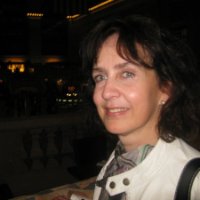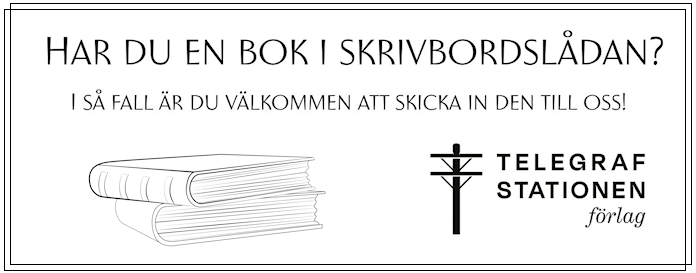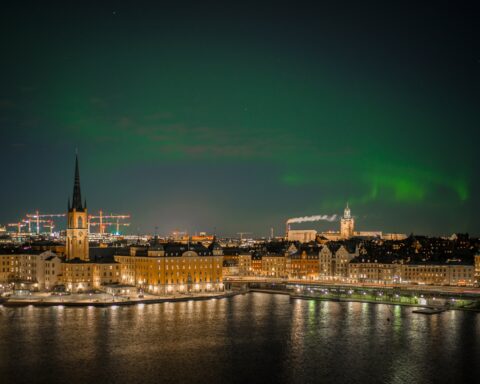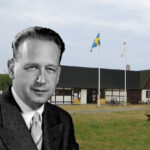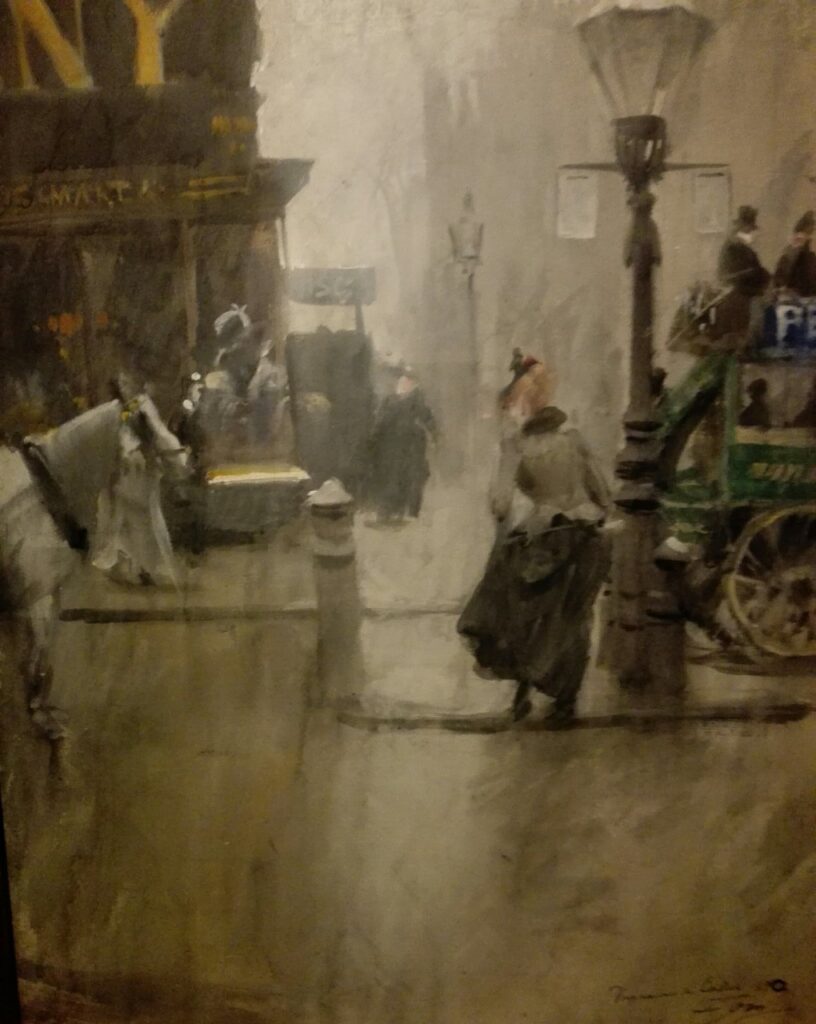
ART. This is a somewhat equivocal title for this spring’s exhibition of the painter Anders Zorn (1860 – 1920), showing at our National Museum in Stockholm. It’s true that he was well-known, but for some, he’s outdated. I tried to find out what such a traditional painter can offer a contemporary viewer.
Stockholm National Museum has finally opened its doors after several months of lockdown. It wasn’t long ago that the museum closed its doors for five years of restoration. The reopening finally took place a couple of years ago, and then the museum had to close again due to the pandemic. The museum’s permanent collections are still closed, but the museum was allowed to open this exhibition under strict Corona-restrictions.
I guess that the museum director hopes to draw many visitors to view one of Sweden’s most renowned artists. Will the public follow? Well, that remains to be seen. I was myself a bit reluctant to go and see yet another exhibition of this for a sure skilful artist but rather conservative in his way of painting.
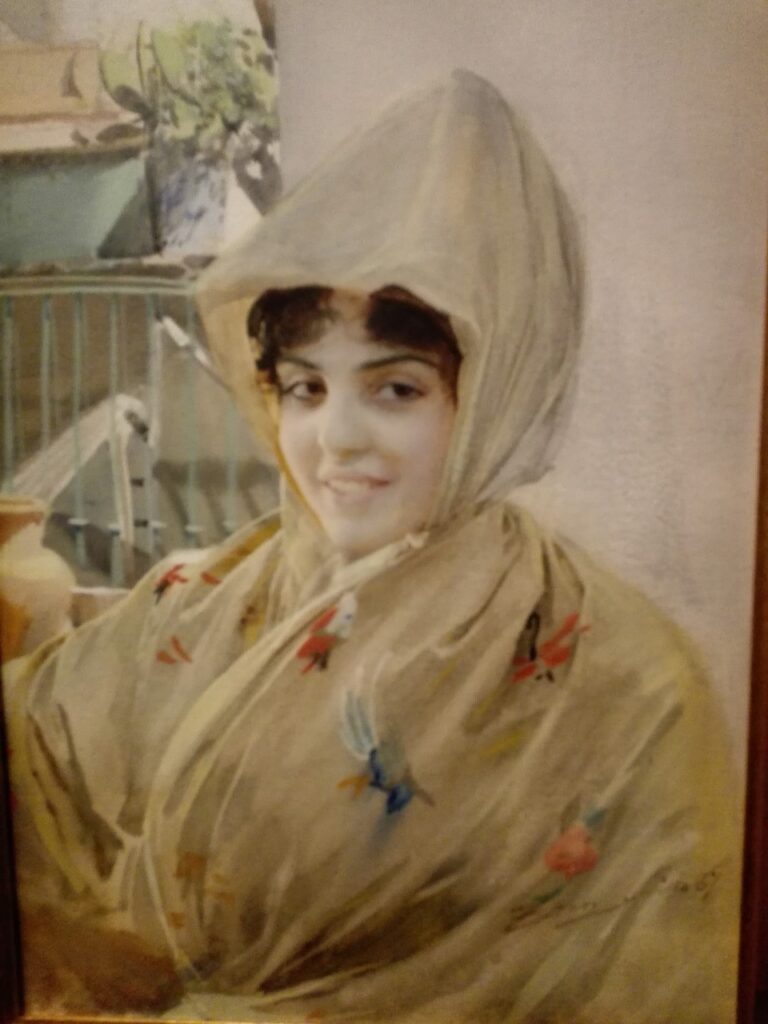
The exhibition is huge and covers his long life exhaustively as an artist. He developed early on in his career exceptional techniques for his water-colours, oils, etchings and sculptures. Works are shown from the National museum’s own collections that I had seen before and some from the Zorn Museum in Dalecarlia. Interestingly enough, there are also paintings from private owners that have never been shown before.
The scenery is not exceptional – rather conventional – and less interesting than the one at Petit Palais, in Paris a few years ago. However, the sober decoration at the National Museum enhances the artworks.
The familiarity of his paintings permitted me to study his precise brush strokes; lighting inspired by Rembrandt; special body colourings and settings, as well as his exceptional rendering of water. Somebody asked me if it was photographs or paintings when I posted some exhibition pictures on the Internet. No wonder that he gained such an international renommé during his lifetime!
The exhibition is in chronological order: starting with his watercolours. It wasn’t until 1987 that he began painting in oil as well. There are works from his many trips abroad: from Constantinople to Alhambra, St Ives, Paris, London and several portraits that he did during his no less than seven trips to the USA.
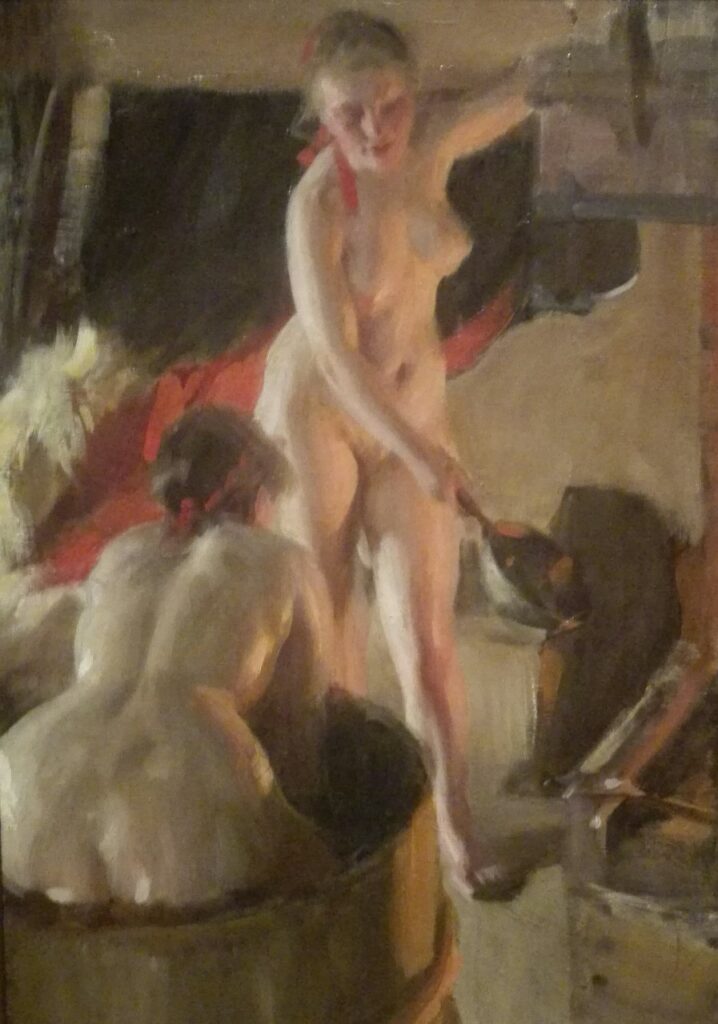
However, it was Dalecarlia (Dalarna), his home turf, that was closest to his heart. Zorn’s paintings from everyday life there, having dressed up his muses in their traditional clothes, give us a glimpse of the lives they lived. It’s as much a delight for the eye as it gives us a very vivid historical insight into a way of living that has long passed. Hard labour, no running water, women and children washing in the lakes or basins, brewing beer or baking bread, as well as traditional dances and drunken men. I felt as if I was partaking in their daily lives.
Stories are being told through his paintings, just as one would read in a good book. The entirety of his works makes the person behind it interesting, like a memoir in colour. The elegant portraits also tell us something about that time’s fashion, the fabrics used, the way of portraying oneself and viewing others, whether men or women.
Anders Zorn had an eye for details that indicates a man of great sensitivity. He must have been a romantic as well. His most favoured muse was his wife, Emma, that he painted in intimate and delicate scenes. They had no children, but his love for children can be sensed by his careful and tender depictions of them in several paintings – often together with their mother. The nudes are those of a sensual man’s.
This traditional artist, who never bent for the tendencies of the moment, but continued throughout his life to paint in his own style, is still valid in our epoch. Zorn will never become boring or out-of-date, thanks to his exceptional skills and to his sensual and deep-looking eye for details. I came out of the exhibition elevated by the beauty that my eyes had been washed with during the two hours I spent with this world-renowned painter!
